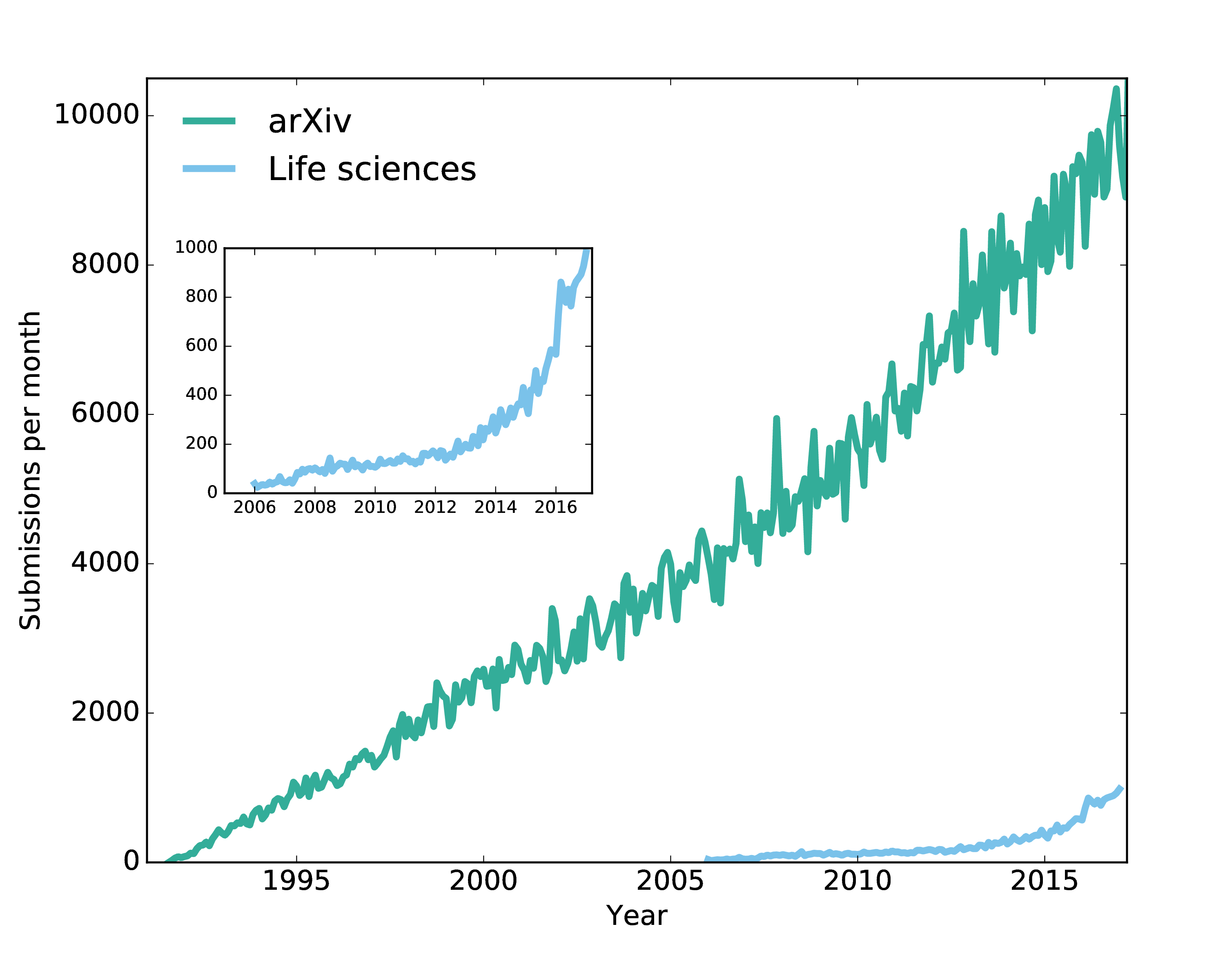PREreview, A New Resource for the Collaborative Review of Preprints
Reviewing preprints provides feedback to the authors and helps involve more scientists in peer review.
Send us a link
Reviewing preprints provides feedback to the authors and helps involve more scientists in peer review.
In theoretical computer science and machine learning, over 60% of published papers are on arXiv.
Biologists are posting unreviewed papers in record numbers. Here's a survival guide.
Opinions are divided on whether the surge in popularity of pre-prints represent a field-wide disaster or the coming of a populist revolution.

Biologists are posting unreviewed manuscripts in record numbers. But many are still not sure it's a good idea. A survival guide for scientists.

The strengths and weaknesses of arXiv in an effort to identify what possible improvements can be made based on new technologies not previously available.

Early findings from across the geosciences will soon have not one, but two online servers ready to post preprints.

Some worry that posting unvetted medical manuscripts could cause problems.

Hypothesis and Cold Spring Harbor Laboratory are today announcing the selection of the Hypothesis open source annotation framework for the bioRxiv preprint service as their primary annotation mechanism.
Ultimately, a key question is emerging for higher education institutions: to what extent, and under what conditions, does it make sense to outsource core scholarly infrastructure?

This week, six communities launched preprint services to accelerate dissemination of research.
New preprint services could bring niche scientific communities into the open.
A historian recounts the National Institutes of Health's 1960s pilot test of exchanging unreviewed manuscripts, and how publishers killed it.

Community-driven network will allow scientists to share ideas and post pre-peer review papers.

Authors will have the opportunity to submit their manuscripts directly for consideration to Science.
Authorea, the collaborative document editor for researchers, announced a partnership and direct submission agreement with bioRxiv, the leading preprint server for biological research.

Authors submitting a manuscript to eLife are encouraged to upload it to a recognized preprint server at the same time in order to make their results available as quickly and as widely as possible.
Posting scientific papers online, free to the public, seems like a great idea. But it's more complicated than it sounds.

Flood of online manuscripts generates confusion about terms for distribution and reuse.

Preprints acceptable for citation in research grant and fellowship applications.
What can we do to promote the productive use of preprints in biology?
While preprints have been around since before arXiv.org launched in 1991, fields outside of physics are starting to push for more early sharing of research data, results and conclusions.
A list of people to follow on the preprints subject.

We formulate ten simple rules for considering using preprints as a scientific communication mechanism.
Preprints are receiving welcome attention these days for being an integral part of research communication. We announce that starting this week researchers will be able to directly submit their manuscripts to PeerJ for peer review from the popular preprint server bioRxiv.